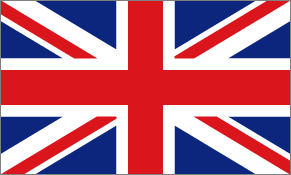
The UK is an imperial nation without an empire that needs a new vision of its future
UK prime minister Liz Truss’s resignation announcement after 44 days in office is the product of long-term trends not something new.
It looks like a personal tragedy for the third woman to reach the top of British politics only to be sacked by her own party. But it’s in fact a manifestation of institutional failure at a national level.
Empires like Britain’s die slowly, not overnight.
In 1919, it encompassed the whole of the Indian subcontinent and what are now Burma, Singapore and Malaysia. Much of sub-Saharan Africa was British-ruled and the UK ran the Middle East from Egypt to Iran.
Just over 50 years later, almost all of it was gone, largely replaced by new sovereign nations represented in the UN. By historic standards, this was a swift transformation that took less than a single lifetime. And it’s incomplete. The empire still exists both in a tangible form and, more importantly, intangibly in the minds of British voters.
The tangible remnants are are imperial outposts including The Falkland Islands, Gibraltar and other crown territories that survive mainly as tax havens.
But closer to Britain’s heartland, around half the electorate in Northern Ireland believe it’s an anomalous legacy of empire that should be reunited with the rest of the island of Ireland. More than 40 per cent in Scotland want independence and perhaps half of those that don’t are mainly concerned with the economic consequences of separation not principles. Even Wales, a prinicipality not technically a kingdom like Scotland, is showing signs of wanting to loosen the London link.
The shenanigans in Westminster this year have further weakened the bonds among the nations that form the UK. Dead empires have no permanent core. Once the rot starts as it did for the British after 1919, there’s no stopping it.
But the loss of land and subject peoples since then has outpaced the decline of the imperial idea in the minds of its people. It’s a key factor driving the political crisis that helped make and then unmake Truss’s premiership.
Britain’s Conservative Party which she headed for less than two months is the world’s most successful political grouping. In government for 70 years in the 20th century and continuously since 2010, the party’s resilience is attributed to many factors including the deficiencies of its opponents. But the Conservative’s abiding appeal resides in its dedication to the dream of Britain ruling the waves even as that reality disappeared.
Wartime premier Conservative Winston Churchill was a reforming liberal who nevertheless believed in Britain’s imperial mission. Harold MacMillan, prime minister from 1956 until 1963, would have been comfortable in Keir Starmer’s purged Labour Party. But he never resiled from faith in Britain’s global role. Margaret Thatcher repudiated many traditional Conservative principles but never stopped believing the British Empire was a good thing.
Conservative prime ministers and policies constantly change. But the party’s attachment to an empire that once spanned the globe never dies.
Many who voted to leave the EU in 2016 and prefer the Conservatives now tend to be inspired by tales of the past rather than a vision of the future. Their hero Boris Johnson, elected with a large majority in 2019 and premier until this September, was a product of Eton College and Oxford University where generations of imperial administrators were trained.
An actor more than a politician, Johnson styled himself as the new Churchill, propounding the hope that Global Britain (GB) would flourish outside the EU. It was a sentimental throwback to a mythical time when Britons — even from the humblest backgrounds — freely travelled from colony to dominion within the protective embrace of an empire on which the sun never set.
It’s a fairytale that many aged over 65 still want to hear. It is why Johnson may recover the Conservative Party leadership and return to 10 Downing Street in little more than a week.
Truss struck a similar chord in her successful campaign for the premiership among Conservative Party members, mainly white people born when the empire still existed. She promised a new lease of British power and prosperity. But ideas without substance can’t last as global capital markets demonstrated when they responded by sending sterling to unprecedented lows against the dollar in early October.
Facts are sometimes hard to face. The UK can only have global significance as part of a new European empire, an option it rejected in 2016, or the US one where an independent foreign policy would be impossible. Hoping to turn back the clock by more than half a century when Britain was both autonomous and influential is a delusion. The claim to be world power has long been misplaced in a world dominated by empires that exist in reality not in people’s heads. And the economic self-sufficiency which makes autonomy possible demands more investment in Britain’s physical and social infrastructure than there’s been for more than half a century.
That’s something Britain’s rulers, whoever follows Truss, are struggling to admit. They too dream of a bygone era when London’s financial and military might struck fear in the hearts of its foes and garnered respect among friends. It’s an elite form of the populist imperialism that underpinned the Conservatives’ apparently endless capacity to win and hold power.
The British Empire’s largely gone and won’t come back. But it may be decades before this truth is universally acknowledged in what, by then, may left of it.